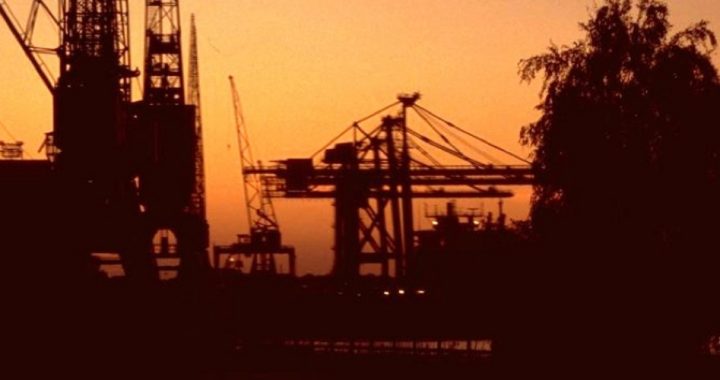
The virtual explosion in Texas’ production of natural gas and oil, thanks to fracking, caught even Citigroup off-guard. In February it apologized for so widely missing the mark in its report the previous year entitled “Energy 2020: Independence Day”:
Momentum toward North American energy independence accelerated last year [2012] well beyond the wildest dreams of any analyst and well above the forecast we made in our first [report] entitled “Energy 2020: North America, the New Middle East?”…
So far, the results have been stunning.… In the decade through last year … natural gas use … grew by a phenomenal 47%, ending coals’ century-long domination….
Starting this year, North American output should start to have a tangible effect both on global prices and trading patterns and will eventually turn the global geopolitics of energy on its head.
In their update due next February, another apology will likely be forthcoming from the company’s next report: “Saudi Texas” has broken nearly every production record just since the first of the year, and it appears to have every opportunity to continue to do so into the foreseeable future.
For instance, this September saw Texas pump an average of 2.7 million barrels of crude oil every day, “the highest daily oil output in the Lone Star State in any single month since at least January 1981,” according to energy analyst and economist Mark Perry. Oil production in Texas has more than doubled in less than three years, with both the Eagle Ford and the Permian Basin formations generating a million barrels every day. There are only nine other oil fields in history that have produced that much.
Perry pointed out:
In mid-2009, Texas was producing less than 20% of America’s domestic crude oil. The recent gusher of unconventional oil being produced in the Eagle Ford Shale and Permian Basin oil fields of Texas, thanks to breakthrough drilling technologies, has recently pushed the Lone Star State’s share of domestic crude oil above 30% in each of the last 17 months, and all the way up to 35% of America’s crude output in both August and September.
This prodigious production now puts Texas in the list of top 10 oil producers in the world, just slightly behind Kuwait. There are 1,000 new jobs being created in Texas every day, and at the current rate of increase, Texas’ production of crude oil is expected to exceed three million barrels per day early next year, and four million less than a year later. As Perry noted:
With those projected increases in Texas output, the state could soon surpass Kuwait, United Arab Emirates (UAE), Iraq, Iran and even Canada to move up in the international production rankings to become the world’s No. 5 or No. 6 oil producer within the next few years.
And that’s just Texas. Similar numbers are coming in from the Bakken oil fields in North Dakota, along with increases elsewhere in the country. Just to put things into perspective, at its peak, Prudhoe Bay produced 1.5 million barrels per day.
The impact of such remarkable development in the oil patch extends from Midland, Texas, the epicenter of Texas’ oil fields, all the way to the Persian Gulf and the Hormuz Strait. Midland now enjoys the lowest unemployment rate in the country and one of the highest per-capita incomes in the country. News of a 53-story skyscraper — the tallest between Houston and Los Angeles — has just been announced.
The Texas gusher is helping to keep gas prices low while changing liberals’ minds. Amy Myers Jaffe provides a perfect example. The executive director of Energy and Sustainability at the University of California, Davis, Jaffe has spent most of her life promoting the austerity lifestyle through federal mandates necessary to keep from running out of oil. Following President George Bush’s State of the Union address in 2006, Jaffe appeared on a panel to discuss Bush’s speech. She confirmed her position as a statist and interventionist when she said:
You have to remember … we could reduce our full dependence on oil from Saudi Arabia just by closing the loophole and requiring light trucks and SUVs to get the same mileage as sedans…
We definitely have the power … to reduce the growth in gasoline use in this country. We’re still not making the kinds of sacrifices [required] … that Americans are not willing to make….
If we’re going to have a major research program, are we going to make industry do that? Is the federal government going to take the lead?
Today the numbers coming out of Texas and elsewhere have changed her tune:
Those who might have relied on the fact that we would run out of [oil] and therefore be forced by lack of available resources to switch to something cleaner … is not going to happen.
Not in my lifetime. Maybe not even in my children’s lifetime.
One has to give Jaffe credit. She has been looking at the numbers. During the last five years, oil and gas employment has increased by 40 percent compared to just a one percent increase in total private-sector jobs over the same period. Twenty-five of all the oil rigs in the world are being deployed in Texas. Projections by McClatchy show the United States producing 16 million barrels of oil and oil products by 2017, less than four years from now, within shouting distance of making the country completely energy independent.
She’s also noticing nervousness around the world. Nigeria, for example, was exporting 1.3 million barrels to the United States every day in 2007, but in August this year, that number had fallen to just 77,000 barrels. For four decades the OPEC cartel ruled the roost and, as recently as a year ago, declared that the fracking boom in Texas and elsewhere would have only a “marginal” impact on its business. That view has changed with the cartel now acknowledging that these new supplies of energy “could cut sharply” into its market.
She must have heard Mark Clinton Thurber, associate director of Stanford University’s Program on Energy and Sustainable Development, when he said that “one thing this [explosion of new energy supplies from Texas and elsewhere] may do is untangle [Washington’s] obsessiveness about Middle East oil … this whole idea that we have to somehow protect these sea routes at all costs.”
It will also work to de-fang the Russian bear, which, under Putin’s autocratic rule and schemes of blackmail, has kept subservient nations dependent upon Russia for its natural gas. New supplies coming to market are estimated to reduce Russia’s share of the European Union’s imports from 34 percent currently to below 15 percent over the next 10 to 15 years, if not sooner. This was confirmed by Charles Ebinger, director of the Energy Security Initiative at the leftist Brookings Institute: “Russia is in big, big trouble.”
The Chinese communist government is watching developments in Texas and elsewhere with increasing unease as well. Wu Sike, China’s former envoy to the Middle East and now a key member of China’s ruling class, wrote:
This writer, as a diplomat who has over 40 years of experience in the Middle East, believes that the U.S.-initiated shale gas revolution will not only change the global landscape of energy distribution but will also change the world’s geopolitical layout. The United States will take a more dominant position in global energy distribution.
He added that the impact of U.S. oil and gas production gains will likely emasculate OPEC. Wrote Sike:
The United States will become less and less reliant on Middle Eastern oil until this reliance finally ends…. [Fracking will have] an insurmountable impact on the Middle East, the global economy and the world’s geopolitical map.
The folks over at Citigroup echoed the same refrain in its February 2013 report:
OPEC will find it challenging to survive another 60 years, let alone another decade. The United States should see its role in the world as a singular superpower enhanced and prolonged….
Burgeoning US energy independence brings with it an opportunity to re-define the parameters of post-Cold War foreign policy.
From Midland to Washington to Beijing to Riyadh, the Texas boom, along with similar explosions in Utah, North Dakota, and elsewhere, is redefining the world economically and politically to the benefit of the United States.
A graduate of Cornell University and a former investment advisor, Bob is a regular contributor to The New American magazine and blogs frequently at www.LightFromTheRight.com, primarily on economics and politics. He can be reached at [email protected].



